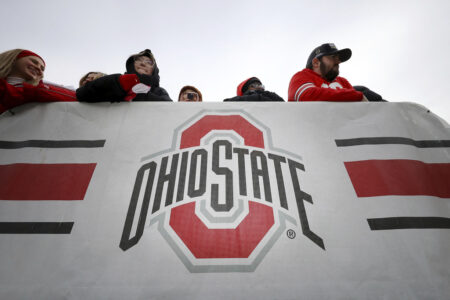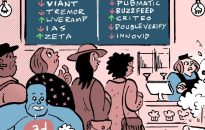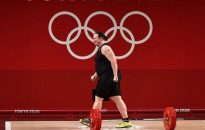The NCAA had denied his request for a waiver for additional eligibility on Jan. 30. Close Senior college football writer Author of seven books on college football Graduate of the University of Georgia Open Extended Reactions Fourqurean testified in a hearing Tuesday that he would make “hundreds of thousands of dollars” in NIL deals if […]

Fourqurean testified in a hearing Tuesday that he would make “hundreds of thousands of dollars” in NIL deals if we were permitted to play for the Badgers this coming season.Fourqurean played in 155 snaps in 11 games at Grand Valley State in the 2021 season, the lawsuit said.”Finally, the NCAA’s summary denial of the UW’s waiver application for plaintiff, albeit after allowing the UW and plaintiff to submit additional evidence, underscores that there needs to be more meaningful exceptions to the Five-Year Rule to avoid unnecessary antitrust injury without an arguable procompetitive justification,” Conley wrote.Editor’s Picks
In the ruling, U.S. District Court Judge William Conley ordered the NCAA not to enforce its five-year rule in Fourqurean’s case “absent a more meaningful demonstration that exceptions to that rule should not apply” to the plaintiff “given the unique circumstances surrounding his 2021-2022 season at Division II Grand Valley State University.”Conley noted there were several factors that would suggest “it would be appropriate to exempt his 2021 season from counting as a season of competition” under the NCAA’s five-year ruling, including his father’s death, then-Grand Valley State coach’s Matt Mitchell’s declaration that Fourqurean was forced into action in games when he wasn’t ready, and his “relatively low total snap count.”Mark SchlabachIn the lawsuit, Fourqurean’s attorneys asked the court to grant a temporary restraining order and preliminary injunction that would prevent the NCAA from enforcing its bylaws pertaining to its five-year rule for eligibility, three-year eligibility limits for transfers, and to rule that Fourqurean’s first season at Division II Grand Valley State be considered a missed opportunity under NCAA rules because of the death of his father in 2021.”The NCAA and its member schools are making changes to deliver more benefits to student-athletes,” noted Brutlag Hosick. “But the recent patchwork of state laws and court opinions continues to make clear that partnering with Congress is essential to provide stability for the future of all college athletes.”Fourqurean started five games for the Badgers in 2023 and all 12 this past season, totaling 51 tackles with one interception.”Moreover, defendant’s eligibility rules likely depress competition for roster spots, and thus, player NIL earnings, by categorically excluding athletes after four seasons of competition when their marketability for NIL income is more likely than not to be at its apex,” Conley said in his ruling. “Accordingly, plaintiff has shown that the Five-Year Rule has an anticompetitive effect.”Fourqurean’s attorneys asked a judge for injunctive relief from the court because he had until Friday to declare for the NFL draft.Fourqurean, a senior from Mentor, Ohio, signed with Grand Valley State out of high school. The 2020 season at the Division II school in Michigan was canceled because of COVID-19 restrictions. Fourqurean’s father died during the summer of 2021, causing him to miss weeks of offseason training, according to the complaint.A federal judge granted Wisconsin cornerback Nyzier Fourqurean a preliminary injunction to play another season for the Badgers on Thursday, after the player argued in a federal lawsuit that the NCAA was depriving him of opportunities to profit from his name, image and likeness because his five-year eligibility clock started while he was playing two seasons at a Division II school.”The NCAA supports all student-athletes maximizing their name, image and likeness potential, but today’s ruling creates even more uncertainty and may lead to countless high school students losing opportunities to compete in college athleticism,” Michelle Brutlag Hosick, NCAA director of communications, said in a statement. “Altering the enforcement of foundational eligibility rules -approved and supported by membership leaders – that are designed to help ensure competition is safe and fair for current and future student-athletes makes a shifting environment even more unsettled.”














